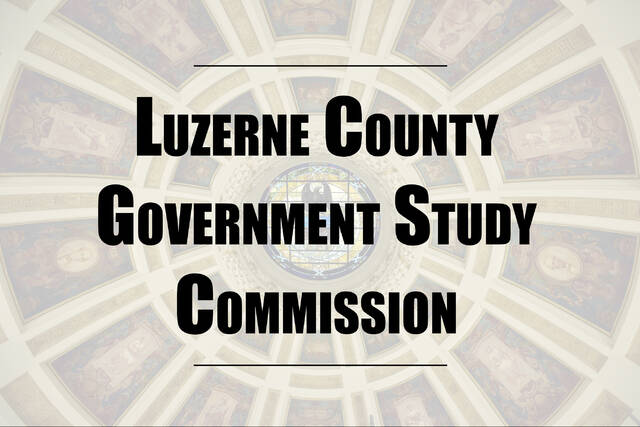Under a scenario that took shape Thursday, Luzerne County’s Government Study Commission would recommend keeping a five-citizen election board but mandating that it has more power, including authority to hire the election director and prepare the annual budget request to county council.
Currently, the county manager handles these duties but must consult with the board.
The potential change would be similar to the structure of the county controller’s or district attorney’s offices, with the election board-selected director overseeing staff and reporting to the board instead of to the county manager or council.
The commission is drafting a revised charter that will come before voters for possible adoption in November.
Commission members will not formally vote on the election board recommendations until proposed wording is presented at an upcoming meeting.
The movement to mandate more board power was largely in response to a legal overview Thursday from commission solicitor Joseph J. Khan, of Curtin & Heefner LLP.
Khan said home rule counties have discretion over how election boards are structured but must comply with the Pennsylvania Election Code, or Title 25, in setting forth the duties of the board.
The county’s current charter was clear about the selection of election board members but did not spell out the board’s duties, creating the potential for conflicting interpretations and future legal challenges, Khan told the commission.
Khan said Title 25 is clear that election boards have employee appointment authority and other responsibilities.
This very issue arose soon after the charter’s January 2012 implementation when the county’s election director was terminated by the manager, Khan said.
He was referring to Leonard Piazza, who oversaw the election bureau from April 2004 until his termination in April 2012.
Among other issues, Piazza’s litigation argued then-county Manager Robert Lawton did not have authority to terminate him because that power is held by the election board. There was no final court decision because a council majority approved a $56,000 settlement in March 2018 to end Piazza’s litigation.
Under the current charter, county council appoints four of the five citizens — two Democrats and two Republicans. Those four council-appointed members then select someone of any affiliation, or no affiliation, to fill the fifth seat and also serve as chair.
Prior to home rule, the county’s three elected commissioners served as the election board, with the court appointing substitutes during periods when sitting commissioners appeared on the ballot.
During Thursday’s two-hour discussion on the matter, commission member Stephen J. Urban said he has long argued that the election board was not exercising its lawful powers, which he said include the authority to select the county’s voting system.
Commission members discussed different scenarios of adding council members and/or the county manager to the board as voting or non-voting members, but the majority consensus appeared to be for keeping five citizens.
Regarding the fifth election board seat filled by election board members, commission Chairman Ted Ritsick said he does not believe that person should be required to fill the chairmanship seat. Ritsick said he believes more citizens would apply for the fifth seat if they did not have to serve in the leadership post. He advocated for allowing board members to select anyone to serve as chair during annual reorganization meetings.
Several others voiced support for Ritsick’s suggested change.
Commission members Mark Shaffer, Vice Chairman Vito Malacari and Treasurer Cindy Malkemes strongly opposed the addition of council members or the county manager to the election board as voting or non-voting members.
Reach Jennifer Learn-Andes at 570-991-6388 or on Twitter @TLJenLearnAndes.




